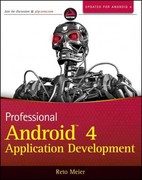Answered step by step
Verified Expert Solution
Question
1 Approved Answer
Q1(a): Show the Stack after each operation of the following sequence that starts with the empty stack: push(a), push(b), top(), pop(), push(c), pop(), push(d), pop(),
Q1(a): Show the Stack after each operation of the following sequence that starts with the empty stack:
push(a), push(b), top(), pop(), push(c), pop(), push(d), pop(), pop()
Q1(b): Show the Queue after each operation of the following sequence that starts with the empty queue:
enqueue(a), enqueue(b), dequeue, enqueue(c), enqueue(d), dequeue, dequeue
Q2(a): For each of the following functions, indicate how much the functions value will change, if its argument is increased threefold.
(a) n3 (b) 2n (c) log2 n
Q2(b): Indicate whether the first function of each of the following pairs has a smaller, same, or larger order of growth (to within a constant multiple) than the second function.
(a) 2n-1 and 2n (b) (n - 1)! and n! (c) log23 n and log2 n2
Q3: How many comparisons (both successful and unsuccessful) are made by the brute-force string-matching algorithm in searching for each of the following patterns in the binary text of 1000 ones?
(a) 11010 (b) 00111 (c) 111010
Q4: For each of the following algorithms, indicate (i) a natural size metric for its inputs; (ii) its basic operation; (iii) whether the basic operation count can be different for inputs of the same size:
(a) Computing the sum of n numbers (b) Computing n!
Step by Step Solution
There are 3 Steps involved in it
Step: 1

Get Instant Access to Expert-Tailored Solutions
See step-by-step solutions with expert insights and AI powered tools for academic success
Step: 2

Step: 3

Ace Your Homework with AI
Get the answers you need in no time with our AI-driven, step-by-step assistance
Get Started


